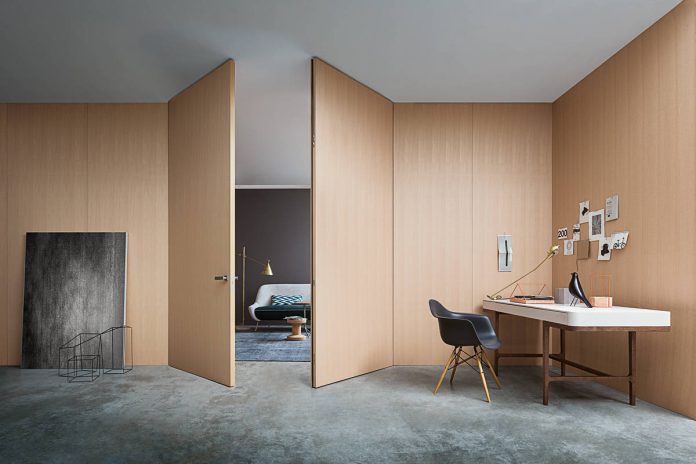Lualdi is one of three European companies, and the only one from Italy, that are involved in the Eco-Silentwood project, sponsored by the European Community. The consortium of the three businesses, with the German company Pad and the Slovenian firm Melu, will have the task of creating an innovative product for indoors with high-performance technology and, above all, eco-friendly.
Eco-Silentwood seeks to be the first wooden door in Europe with high fire resistance (EI30) and acoustic insulation (a reduction of between 37 and 39 dB) at a competitive price (under 650 euros). Vital prerequisites will be a maximum thickness of 45 mm and a weight of no more than 70 kg, as well as being made from environmentally-sustainable materials that enable access to the green-building sector.
Each of the three companies is engaged in creating its own prototype – with potential for mass production – which will be assessed and selected by the European Community before being presented in May 2017.
It’s all part of a wide-ranging project Horizon 2020 – SME Instrument, the most substantial European funding programme (around 80 billion euros for the period 2014-2020) in support of Research and Innovation in different subject areas: Euratom, Excellence Science, Industrial Leadership, Societal Challenges (including Eco-Silentwood in the subcategory Climate action, Environment, Resource Efficiency and Raw Materials), Science with and for Society and others. This programme, in turn, is part of a broader initiative, Innovation Union, which seeks to increase Europe’s global competitiveness.
“This is an extremely fascinating project,” explained Pierluigi Lualdi, manager of the Contract and Client Management division and responsible for the company’s research and development. “Primarily, because it is all about research and experimentation so the point of departure is known but how the work develops is not.” Given the project’s complexity, Lualdi sought the collaboration of other European centres of excellence: Inspiralia in Madrid, for the choice of materials and product simulations, Cetem in Murcia and Wic in Ljubljana for aspects concerning product certification and life cycle analysis. “We are tackling this challenge in a very collaborative way with other companies,” Pierluigi Lualdi continued. “The structural diversity of the three companies and their similar sizes have helped us establish a relationship of colleagues, rather than competitors.”







